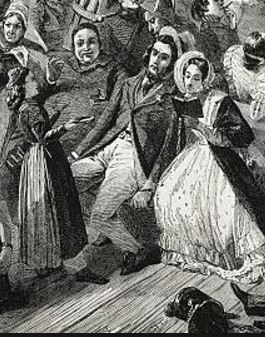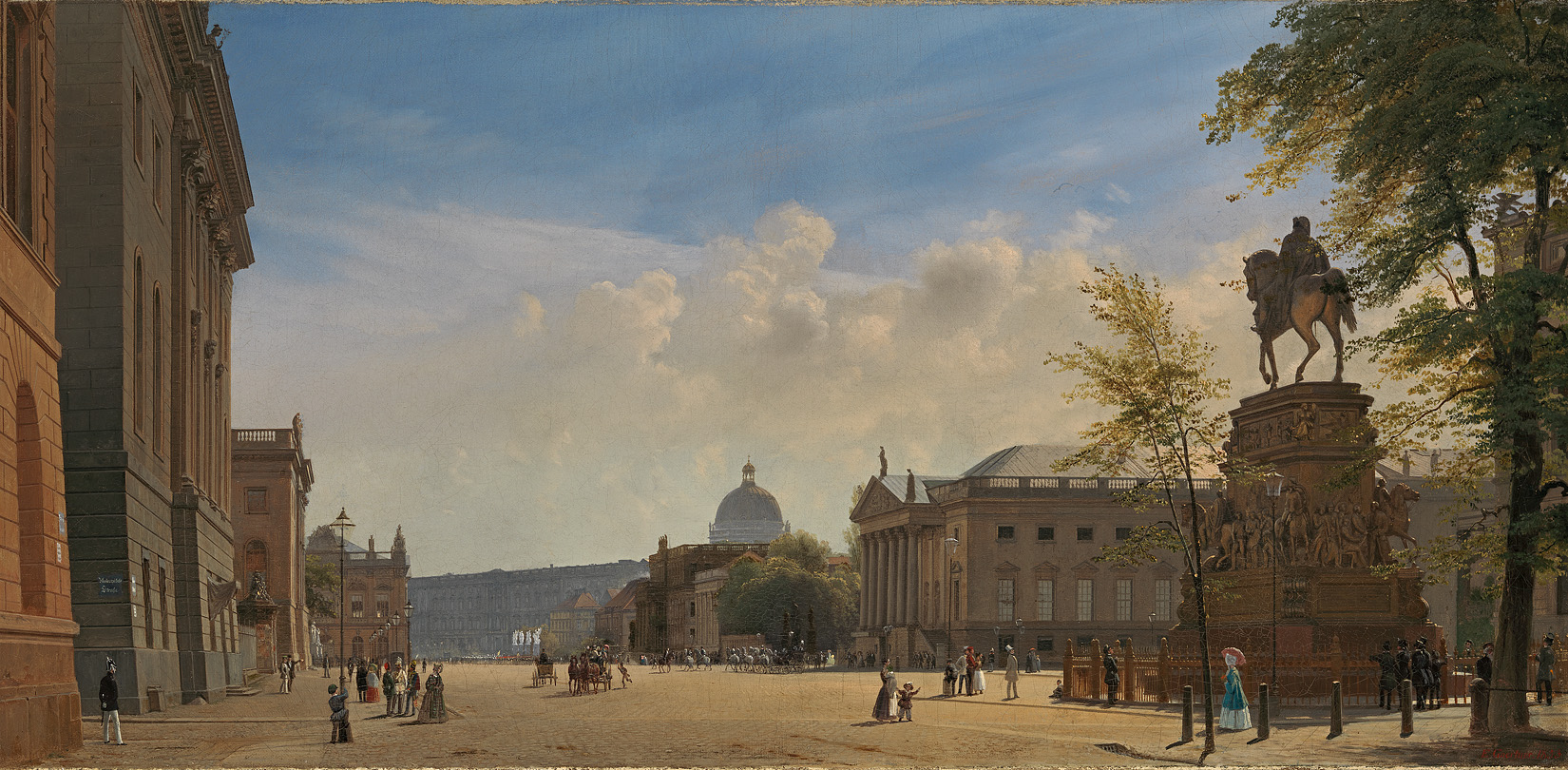Travel Advice and Hotel Etiquette for Ladies in the 1800s
Berlin, 3 July 1847
“In a couple of exquisitely decorated rooms in Hôtel de Rome on Boulevard Unter den Linden, yours truly is sitting with pen in hand to recall from memory the wonderments I have seen since my arrival in the great Prussian capital.”
This is Augusta’s first description of a hotel on the European continent during her and her mother’s journey down to Prague. There are not many remarks regarding hotels in Augusta’s diary but Hôtel de Rome must have been the most impressive hotel. There, they engaged a servant to show them the attractions of Berlin.
Two days later, they arrived at Hôtel de Saxe in Dresden – the most luxurious hotel in town.
“Our stay here at Hôtel de Saxe is very nice and I would say elegant, if I had not just arrived from Berlin, with its fabulous, luxurious furnishings. There are certainly not, as at Hôtel de Rome, six or seven doormen in livery to greet you on the stairs and to take the things you carry. I have to admit that these elegant and conversable domestics made me embarrassed upon my arrival in the great Prussian capital. Here in Dresden, you miss the elegant, carpeted vestibules and staircases, this wealth of stuffed armchairs, canapés, and sofas; however, Hôtel de Saxe, although not as brilliant as Hôtel de Rome, is both gentile and comfortable.”
What could one expect from luxury hotels in the mid-1800s and what was expected of the guests?
In 1860, the American author Florence Heartly published The Ladies Book of Etiquette, and Manual of Politeness. The book includes chapters on Travelling and on How to behave at a hotel.
“After breakfast, pass an hour or two in the parlor, unless you are going out, whilst the chambermaid puts your room in order.”
It just so happens that while writing this blog today, I am staying at a hotel in Dubai and Heartly’s suggestion sounded like a good idea. Heeding the advice, I took Florence Heartly’s book and Augusta’s diary with me and headed for the “parlor” (aka, the mall connected to the hotel). Heartly’s second advice also sounded good: “It is best always to carry writing materials with you.” I skipped her next etiquette rule for hotels: “Never sit down to the piano uninvited, unless you are alone in the parlor.” Instead, I ordered a cappuccino and started reading Heartly’s book – highlighting advice that Kerstin and I might need for our Göta Canal cruise and our train journey through Germany (with the exception of those regarding an escort):
Regarding your escort
- If you travel under the escort of a gentleman, give him as little trouble as possible … [!]
- It is best, when starting upon your journey, to hand your escort a sufficient sum of money to cover all your expenses … [hmm]
- Find out the position and number of the stateroom occupied by your escort, in case you wish to find him during the night. [that is, if you were able to secure a stateroom to sleep in on the steamboat]
Regarding sea sickness

Avoiding seasickness by reading a book.
- …never leave home without a straw-covered bottle of brandy, and another of camphor, in your carpet bag.
- Try to occupy yourself with looking at the country through which you are passing, or with a book.
Regarding your luggage
- Have a strong pocket made in your upper petticoat, and in that carry your money, only reserving in your dress-pocket a small sum for incidental expenses.
- In your travelling satchel, carry an oil skin bag containing your sponge, tooth- and nail-brushes, and some soap.
- Have also a calico bag with hair brush and comb, some pins, hair pins, a small mirror, and some towels. In this satchel, carry also some crackers or sandwiches…
- In your carpet bag, carry a large shawl, and if you will travel by night, … your night clothes and what clean linen you may require …
- If you carry a novel …, it is best to carry the book in your satchel.
- If you are to pass the night in the cars, carry a warm woolen or silk hood – that you may take off your bonnet at night. No one can sleep comfortable in a bonnet.
- Carry also … a large shawl to wrap round your feet.
At the hotel
- When you arrive at the hotel, inquire at once for the proprietor. Tell him your name and address, and ask him to conduct you to a good room…
- It is best to mention the time when you wish to breakfast, dine or sup.
- If you stay more than one day … request one of the waiters always to meet you as you enter, and wait upon you to your seat.
- When you have finished your meal, cross the room quietly; if you go into the parlor, do not attract attention by a hasty entrance ….
- A lady’s dress, when alone at a hotel, should be of the most modest kind.
- Never, even at supper, appear alone at the table with bare arms or neck.
- If you wish for a carriage, ring, and let the waiter order one for you.
Those were Heartly’s advice for travelling ladies. Augusta and her mother probably knew all about travelling etiquette. Now, Kerstin and I will also know what is expected of us when we embark on Augusta’s Journey.



Wonderful, both description of the hotels and the etiquette book. I think the info regarding you luggage can be used even today, but maybe not is several different bags. Or maybe you should use different bags. It not so common with carpet bags now, I didn´t even know that they were called that. Made by old carpets perhaps?
Tack Eva! Yes, carpet bags were useful because they took less space than a trunk. And old carpets could be recycled. I still need to make one :).